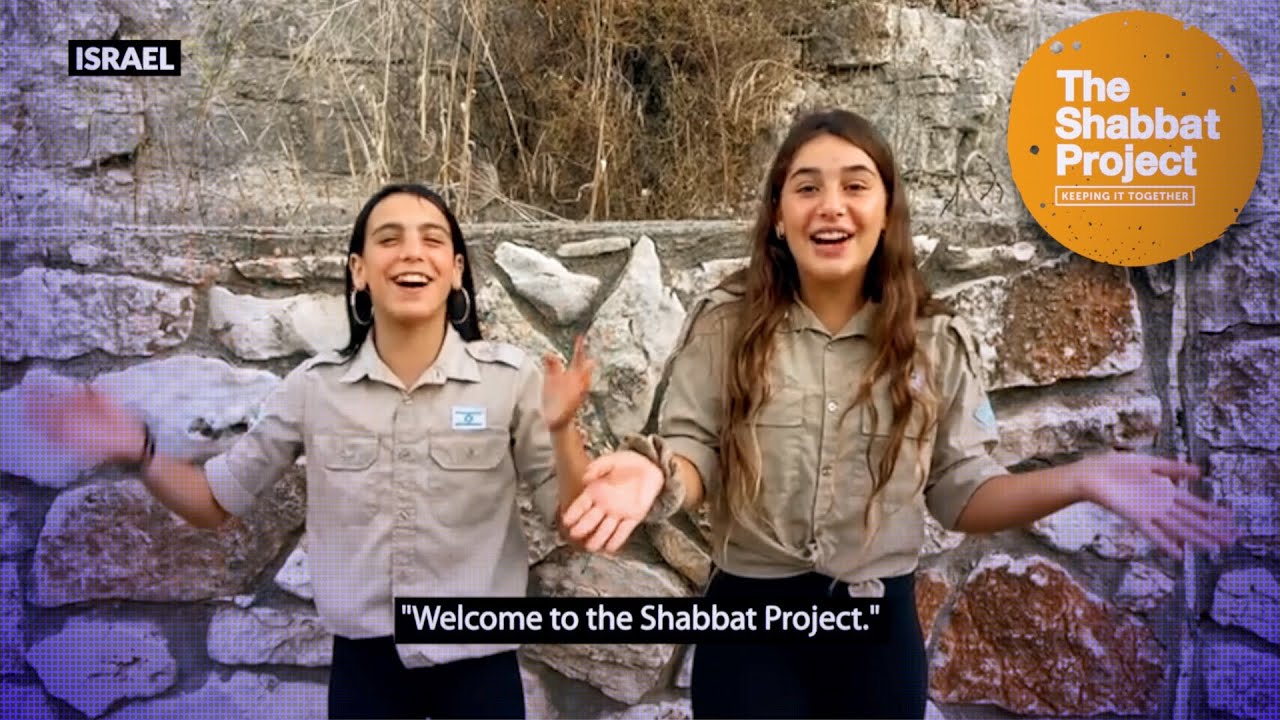After nearly two years of being kept apart, participants of the international Shabbat Project in more than 1,500 cities and 109 countries worldwide will return to the annual initiative’s well-known in-person Shabbat experiences from October 22-23.
Following last year’s pivot to home-based Shabbat experiences and Zoom challah bakes – necessitated by the COVID-19 pandemic – this year people are hungry for interpersonal connection and are embracing the in-person Shabbat experience with renewed intensity.
“After all the upheaval, there’s a newfound sense of relief, joy and optimism. This year’s Shabbat Project is a dramatic expression of this reawakening,” says South African Chief Rabbi Dr. Warren Goldstein, the founder of the Shabbat Project. “There’s a real thirst for the gift of Shabbat right now, and also an urge to share this gift with others. After 18 months of isolation, as the world begins to return to a semblance of normalcy, we want to reach out to the people around us, reconnect with the people we love. Shabbat is the perfect opportunity for doing so.”
Goldstein adds, “We have lived through times of chaos and confusion. But Shabbat can restore the balance to our lives. In a world turned upside down, it can keep us the right way up.”
Now in its eighth year, he says the Shabbat Project is reaching further than ever.

“Something big is happening this year. It’s a message I keep hearing from our thousands of volunteers in more than 100 countries around the world: People are getting on board the Shabbat Project like never before. New initiatives. New events. New participants. A new energy in the air,” he says.
Among Shabbat Project initiatives elsewhere, a student from Cornell University is leading a campaign among fellow students to switch off their phones for Shabbat. The international youth movement EnerJew is coordinating the “Gift Shabbat” campaign, which will see Jewish teenagers in 20 cities in the former Soviet Union baking challah and delivering it along with greeting cards and candles to elder community members. And organizers of a challah bake in Lisbon, Portugal, are using the proceeds to distribute Shabbat meals to Jewish families in need.
In Israel, where the project is again a force for unity within the society, a group of women in Kochav Yair have organized a street Kiddush for the entire yishuv, for people of all levels of observance to get to know each other better. In Karnei Shomron, members of the religious Bnei Akiva and secular Tzofim youth groups have joined forces to arrange a Shabbat gala dinner for soldiers from the local battalion. And a group of Israel-based influencers on Instagram, from diverse backgrounds and varying levels of observance, are publishing posts in support of this week’s Shabbat Project.
Meanwhile, a woman in Park Potomac, Maryland, is going door to door in her neighborhood, inviting anyone with a mezuzah for Shabbat meals. And in Nizhny Novgorod, Russia, four families new to the Shabbat experience are hosting Shabbat dinner, inviting all their neighbors; they have received a special Shabbat kit to assist them with the preparations.
Also new to the Shabbat Project this year is the Shabbox, a special gift box with downloadable resources, designed to help young Jewish families experience the joy of sharing Shabbat together as a family. The Shabbox includes fun educational resources and activities, co-created family Shabbat recipes and menus, personalized “blessing cards that parents and children create together,” interactive parsha cards and exciting games to play around the Shabbat table.
“In a world of unrelenting distraction and pressure, Shabbat is a unique opportunity for families to truly connect in a magical way. The idea of the Shabbox is to empower parents and children with resources and activities to bond in a fun and meaningful way, and together to create something magical and unique – even life-changing – from these 25 hours.”
The heart and soul of this year’s Shabbat Project, once again, is the army of intrepid “people’s partners” – thousands of volunteers around the world, each bringing a unique creativity and flair to the project. It is this grassroots innovation, passion and energy that has fueled the Shabbat Project since it began in South Africa in 2013.
“There are thousands of partners – of all backgrounds and levels of observance – doing everything they can to reach out to their communities, to host Shabbat events, to spread the love and beauty of Shabbat, which our world needs now more than ever,” Goldstein says.
Goldstein maintains that the values of Shabbat are more relevant and compelling than they have ever been.
“Shabbat gives us uninterrupted time with family and friends, away from the pressures of work, away from the interruptions of our phones, away from the world of social media and the unending news cycle that so consumes our attention,” he says. “Shabbat is 25 hours of real love and connection. It is the God-given gift of time.”
The 2021 international Shabbat Project will be taking place in more than 1,500 cities around the world on October 22-23, 2021. Visit www.theshabbatproject.com for event listings in your area, or to find out more.
Republished from San Diego Jewish World


























